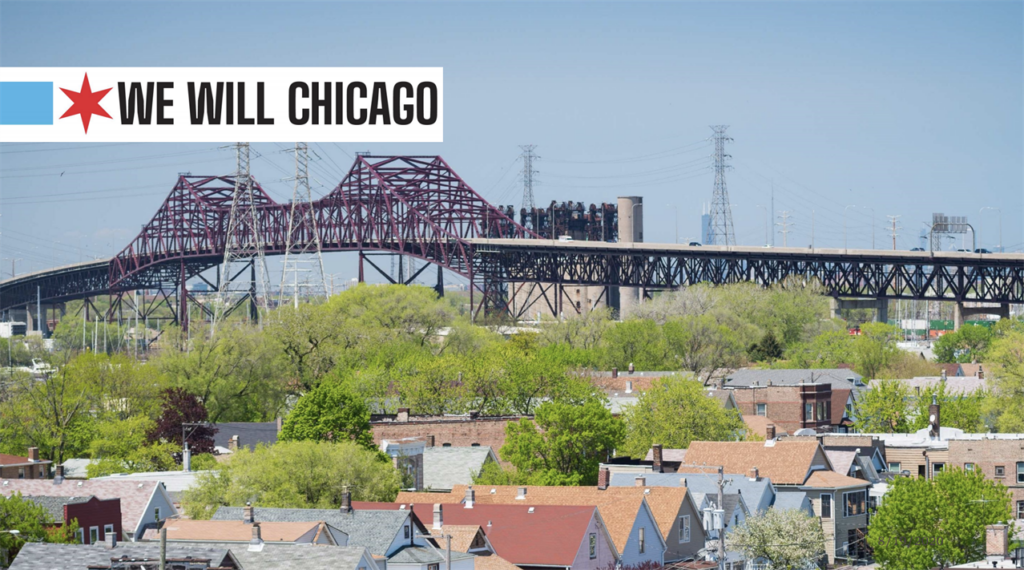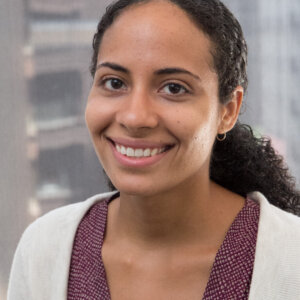Let’s Plan a Better Chicago

“We Will Chicago” is a new, three-year citywide planning initiative. The goal of the plan is to address systemic, social, and economic inequities in Chicago, and be driven by a robust public engagement process. Here’s why you should lend your voice to Chicago’s first comprehensive plan since 1966.
Chicago is famous for its history of urban planning, from the 1909 Plan of Chicago, to its boulevard system, to its “forever open, clear, and free” Lake Michigan. For the last 50 years, though, our efforts to plan for the whole city have not been particularly successful. Chicago has not had a citywide plan since 1966, and that plan was never formally adopted and implemented.
At their best, citywide plans allow us to plan for the future, collectively. If done right, they are inclusive visions for what the city should be, and they align the resources to achieve ambitious goals that make Chicago a better place to live for everyone. Chicago is still in the grips of a global pandemic and has experienced wide civil and social unrest. One of the main recommendations from the COVID-19 Recovery Task Force that Mayor Lightfoot convened this summer was to create a new citywide plan, We Will Chicago, to tackle the systemic inequities across the city that were laid bare this year. But, after 50 years with no plan, where should we even start?
One of the main recommendations from the COVID-19 Recovery Task Force that Mayor Lightfoot convened this summer was to create a new citywide plan, We Will Chicago, to tackle the systemic inequities across the city that were laid bare this year. But, after 50 years with no plan, where should we even start?
Luckily, Chicago is not alone in wanting to use planning as a tool to tackle intractable challenges. Our city can take inspiration from, and improve, the processes used in cities like Boston, Nashville, and Denver (to just name a few) that have a history of using citywide plans to drive short-term and long-term changes in land use, housing, transportation, and natural resources aligned with capital projects, policy, budgeting, and economic development initiatives for strategic investments. Through citywide plans, cities have made significant zoning changes, like addressing housing affordability by using upzoning to allow taller, denser buildings in areas that are single-family, like Minneapolis or annually tracking and reporting on metrics aligned with sustainability and equity, like Los Angeles. There is a lot we can learn from how other cities have created plans and we can use these experiences to do it better.
This autumn, led by the City’s Department of Planning and Development (DPD), the Department of Cultural Affairs and Special Events (DCASE), MPC, along with the Chicago Metropolitan Agency for Planning, and many others, will be assisting with stakeholder engagement around what a citywide planning (and eventually implementation) process should look like. Before we collectively launch the important and critical process of creating a new citywide plan, we’re convening voices to explore how this process can work best, how to include the voices of all Chicagoans, how to incorporate lessons from other cities, and how to overcome our own city’s past planning challenges. We’re using this season to imagine the “how” before moving full steam into the “what.” Right now, we have no strict answers, but we are optimistic that through this autumn pre-planning process, we can soon collectively create inclusive recommendations together.
To kick-off preplanning efforts, DPD presented at the August Plan Commission meeting to describe the guiding timeline and plan for efforts in 2020, 2021 and 2022. First up, MPC organized a September workshop series to more thoroughly explore the challenges and successes peer cities have had in creating and implementing citywide plans. We learned a lot last year in our conversations with other cities, from the importance of early community engagement to the range of what makes a good plan (75 pages, like Denver or 1,256 pages, like Minneapolis?). The information we gleaned in those conversations with representatives from other cities was incredibly helpful in thinking through how to structure a process in Chicago and how to track it through to implementation. It also demonstrated the type of collaboration that is needed from City leadership to succeed at such a complicated undertaking. MPC wanted Chicago stakeholders to hear directly from other places to help shape a citywide planning process.
So how can you get involved? The September workshops are just one engagement effort of many that will be taking place at the end of this year. There will be opportunities for stakeholders and residents to participate and make their voices heard through public engagement activities being led by the DCASE later this fall as well as through an online engagement platform that DPD is sponsoring to host all of the engagement activies and planning information. This is an opportunity for us to all to craft a new vision for Chicago. We hope you will join us! Stay tuned for more information. We will post it as it becomes available.
